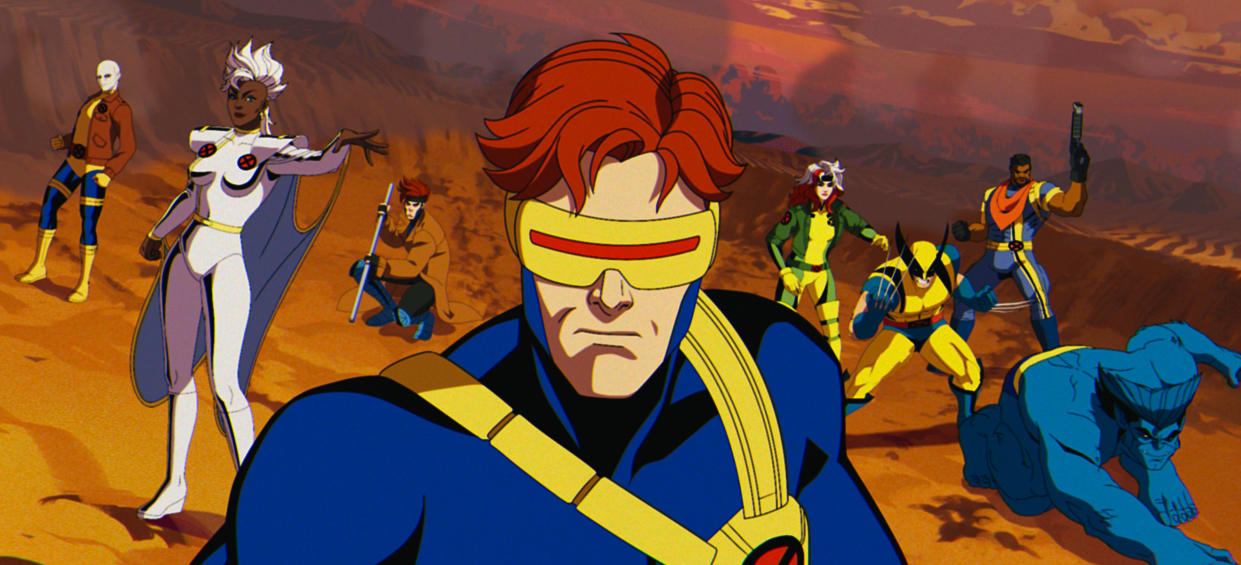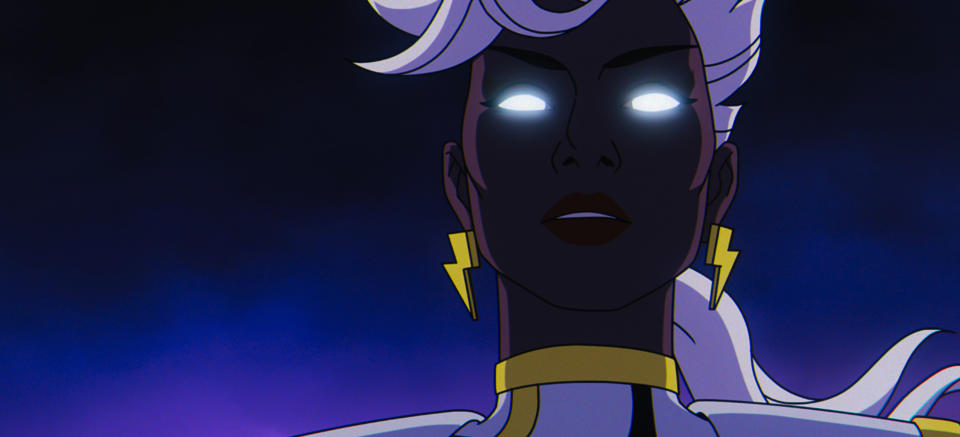The ‘X-Men ’97’ Smartly Repurposes Iconic Theme Song for Its Experimental Score

All hell broke loose in the fifth episode of “X-Men ’97,” “Remember It.” The shocking events are so traumatic, in fact, that fired showrunner Beau DeMayo momentarily broke his silence about the show to explain why it was important to reflect that “the X-Men have now been hit hard by the realities of an adult and unsafe world.”
It was against this unpredictable backdrop that The Newton Brothers Andy Grush and Taylor Stewart composed a score (out May 24) for the reboot that both honored and transcended the spirit of “X-Men: The Animated Series.”
More from IndieWire
“We started tackling the music in a sort of multi-faceted way at first [before seeing full episodes] because we didn’t really want to pretend that we knew exactly what the show should be because there are so many aspects,” Grush told IndieWire. “So, for us, it was about trying to give proper credit to various genres and ideas, and seeing how those felt to the team and letting that sort of evolve throughout the season.

But because the series continues to escalate its powder keg of hate and destruction, the composers couldn’t find the usual thematic consistency of other shows. “Oftentimes in a TV series, there will be a comfort level at a certain point,” Grush added. “Like, these are the sounds we’re using, and we’ll use this theme for this character, and let’s just perform it differently. That’s out the window with this show.”
Thus, the duo was forced to step it up musically using different sounds. “You’re never really sure what’s going to happen with the story,” Stewart told IndieWire. “You could be in a really intense moment and then you’re in a loving moment, and then something else crazy happens. So we had to honor that musically.”
Fortunately, they were able to find comfort and inspiration in the iconic theme song from Haim Saban and Shuki Levy, developing and weaving it throughout the series. “That was our temperature gauge and keeping it more to the original was very intended,” Grush added. “If it had been wildly different, way more modern, I don’t think it would have worked the same.”
They nostalgically stuck with the exact melody for the main title sequence, but then experimented with getting out of its way in various cues. “In one of the versions early on, I was trying to figure out where to start,” Stewart said “If we know the melody, I’ll generally start with the palette and add the melody. But, in this case, I wanted to start with the melody and everything happens around that. And then it was about finding moments to add or take away from what was in the original.”
A perfect example was the counterpoint in a triplet section with piano that they ended up having to mute. “But then we were able to use that counterpoint at the end [of the cue],” Stewart continued. “But we had to lose the tubular bells because there were some modern synths that were taking up a lot of sonic space.”
They would also sprinkle the main theme with orchestra or synths to hint at when the team was forming or coming together for a fight as an ebb and flow. The first episode of “X-Men ’97” was necessarily filled with nostalgia, but, as the series progressed, they got to tease some different percussive sounds and introduce new thematic material.
“We were able to use the new escalation of danger to our advantage because that gives a pulse to the story that we then don’t have to worry about creating,” Stewart said. One example was Episode 3’s (“Fire Made Flesh”) “Inferno”-like vision of Hell from Sinister (Christopher Britton) and Jean Grey’s Clone, Madelyne Pryor (both voiced by Jennifer Hale), which got the Gothic treatment with organ, synths, closed mic orchestra, and choir.
But it got to the point in Episode 4 (“Motendo / Lifedeath – Part 1”) where “everyone lost their marbles” hearing the theme and it gave them an unexpected adrenaline rush. This is where Jubilee (Holly Chou) and Sunspot (Gui Agustini) get pulled into a video game based on her previous adventures. “It’s so iconic that it was very effective using it throughout the show in any situation,” Grush said.
Best of IndieWire
The 22 Best Spy Movies, from 'Enemy of the State' to 'North by Northwest'
The 12 Best Thrillers Streaming on Netflix in April, from 'Fair Play' to 'Emily the Criminal'
Quentin Tarantino's Favorite Movies: 61 Films the Director Wants You to See
Sign up for Indiewire's Newsletter. For the latest news, follow us on Facebook, Twitter, and Instagram.

